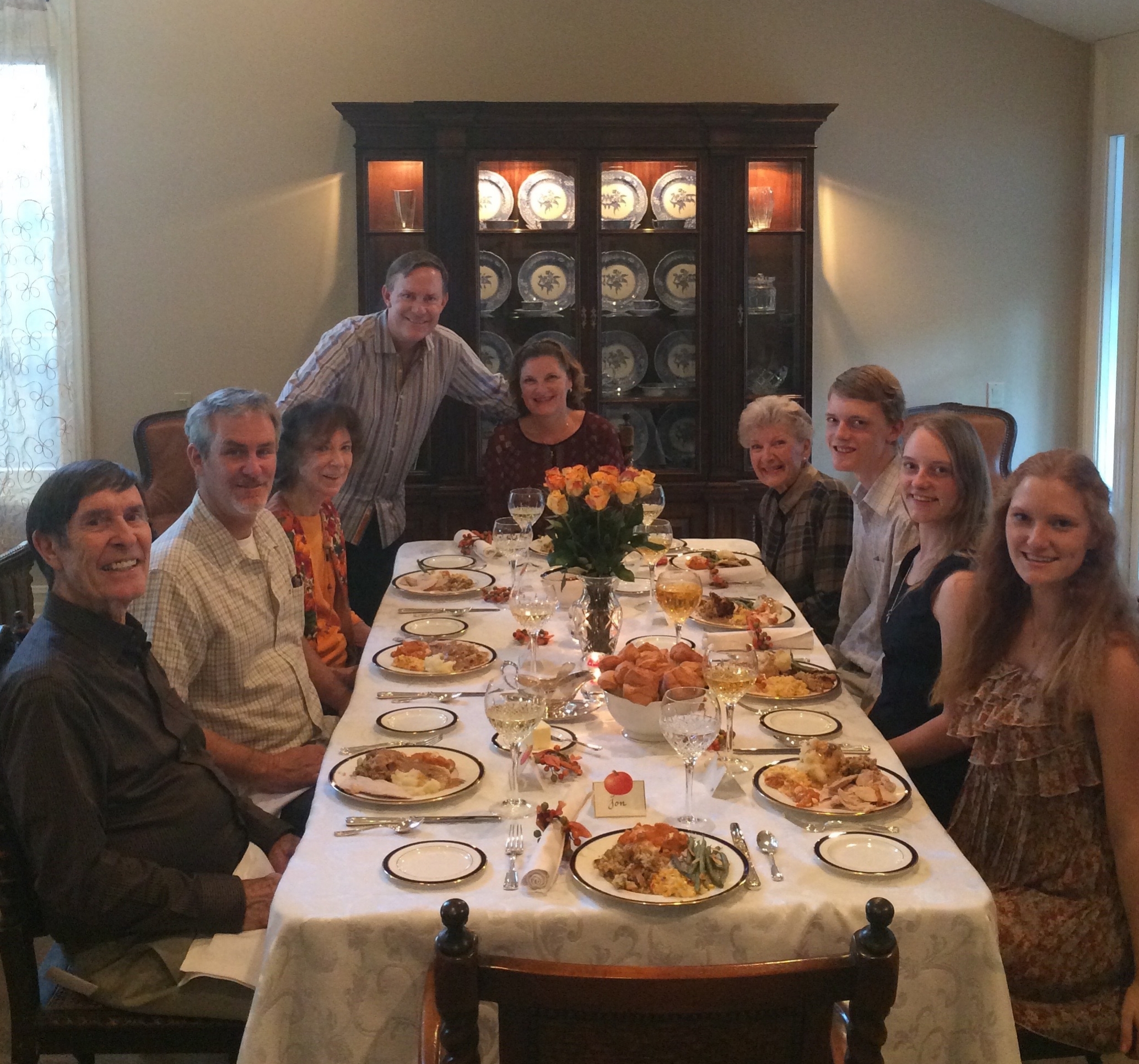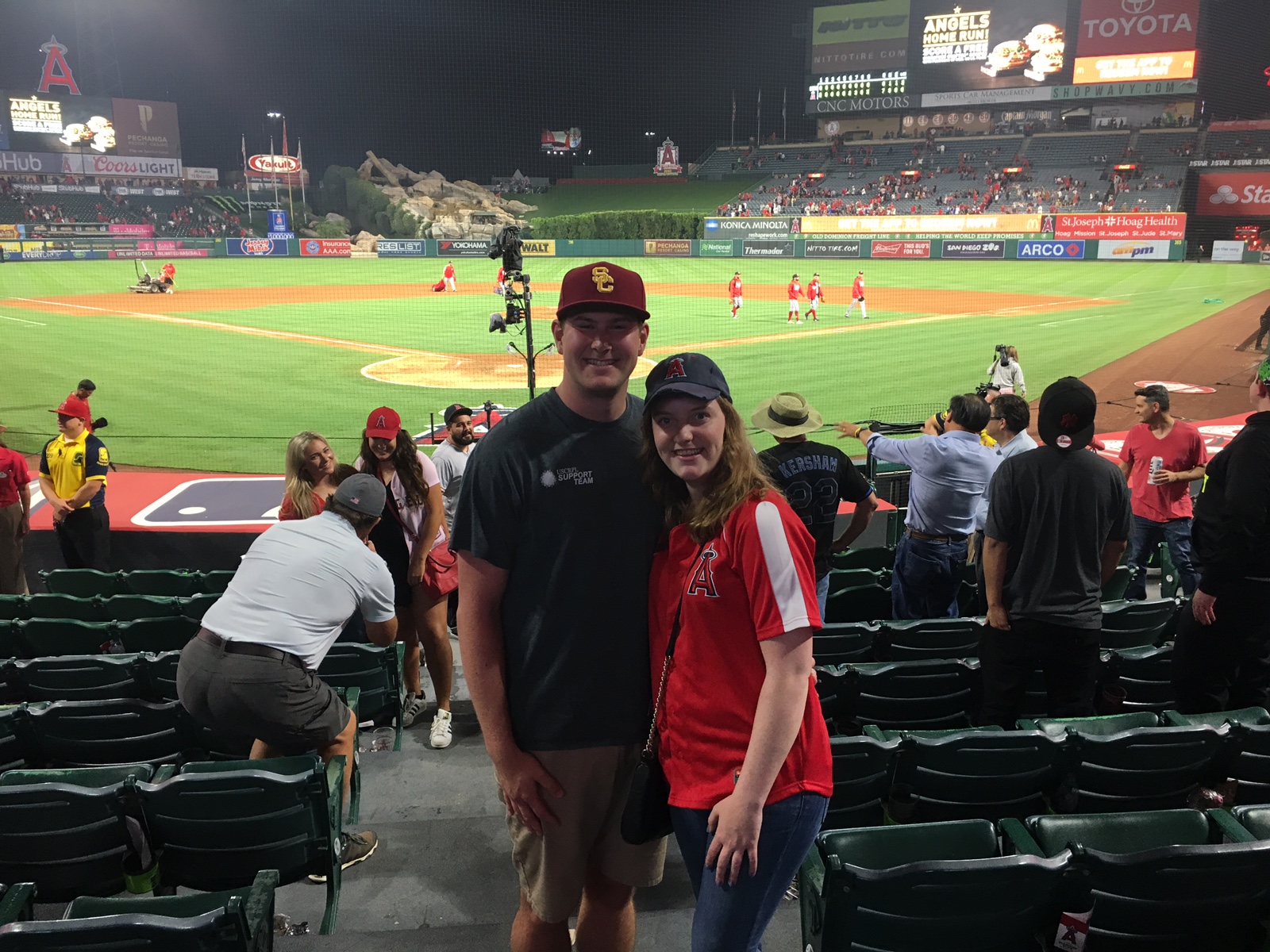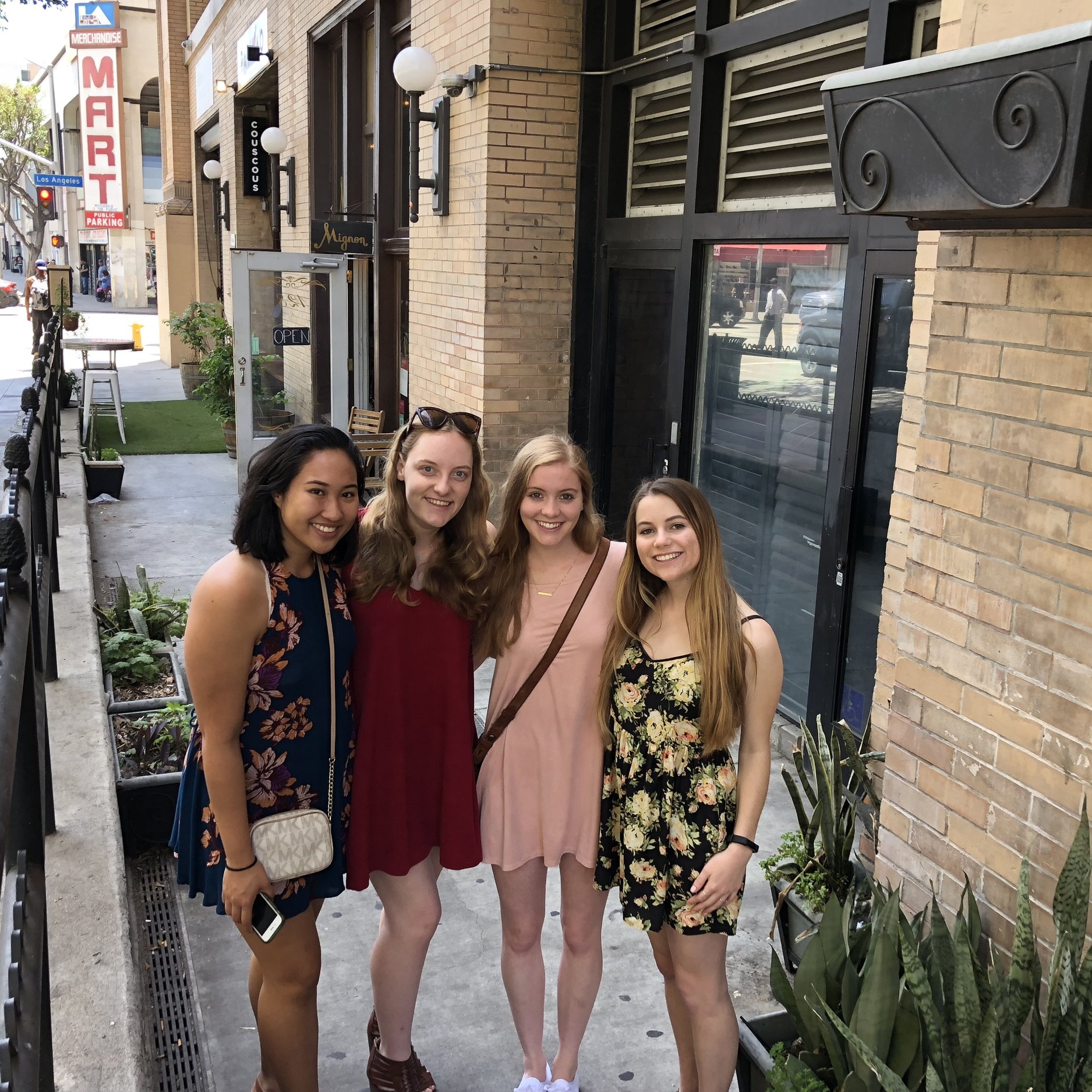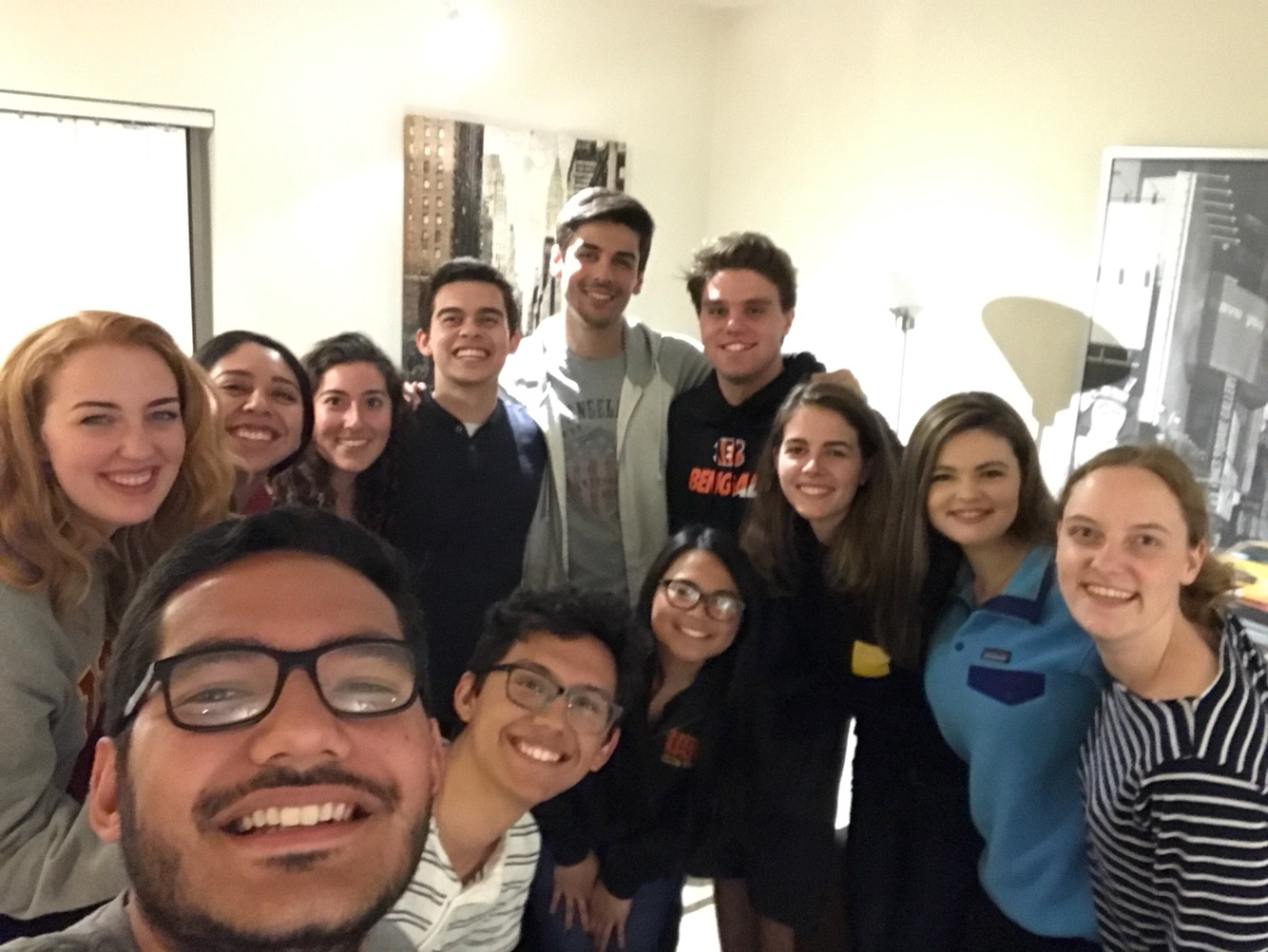For Dr. Ernest J. Gaines, home is the land he grew up on in Ponte Coupée Parish, Louisiana. It’s the same land where he and his twelve siblings were reared by their aunt Augustine, where they attended school in a tiny church building, and where generations of his family members were born and raised. His roots to this place run deeper than the Mississippi waters in the nearby False River, where he often went fishing.
Dr. Gaines is the picture of what a comfortable grandpa looks like. His small-framed glasses, tilted beret, and knowing smile make him charming, as he sits in his armchair and answers our questions. After living for some time in California, Dr. Gaines looks happy to be back on the plantation he has called home since his youth. His wife, Dianne, gracefully helps him respond to some of our trickier queries.
Dr. Gaines’ book, A Lesson Before Dying, focuses on a protagonist who is desperate to get out of his rural hometown. Yet Grant Wiggins is too attached to the place thanks to his job as the local schoolteacher, his affair with married teacher, Vivian, and his assignment to teach innocent Jefferson how to be a man before his wrongful execution by electric chair. Twenty-one-year-old Jefferson is convinced he means nothing to anyone, yet Grant tries to persuade him that he’s worthy of love.
“‘Do you believe I’m your friend, Jefferson?’ I asked him. ‘Do you believe I care about you?’”
In Baton Rouge, we sat in our conference room-turned-classroom after finishing this book, totally floored. Our discussion veered from an investigation of the text to an analysis of ourselves and our culture. Jefferson doesn’t believe that he is wanted, refuses to recognize his inherent worth as a human being, considers himself little more than the “hog” he’s described as to his jury of peers during the trial for his life. His home is nowhere, he feels unloved, he speaks to no one. This mindset is heartwrenching -- yet I've known that feeling too.
Do I believe that I am loved? Do I believe that I am worthy of love? Why?
Some days, those are really hard questions to answer.
For country star Hunter Hayes, home is Breaux Bridge, Louisiana. As a toddler, he performed in the little café steps away from our rental cabin. We ate breakfast where he played guitar years ago, where the wind still whispers between firmly rooted tree branches overlooking the lethargic bayou. Our hostess, Lisa, is proud of “our boy Hunter”. She’s just as excited for him as if he were her own son making his way through the music world.
The sentiment of tight-knit community here is unmistakable. During a jam session in the Joie de Vivre Café, residents danced, played, sang, and clapped along to Cajun music. In Breaux Bridge, it became obvious that our student group of thirteen was from out of town. Yet we were treated like members of the family; four in our group actually got to try out some of the instruments in the jam session, learning them as they played along. The love of these people for their unique culture, for their country, and for each other, is bubbly and contagious and gives us no choice but to walk out the door grinning from ear to ear.
Tim Gautreaux’s short story, “Floyd’s Girl”, highlights a particular instance where this sense of community drives a family across the state. Everyone in the area is distraught when Floyd’s daughter, Lizette, is taken to live with her mother in Texas. This anecdote impeccably describes what several characters think Lizette will miss out on if she leaves home in Louisiana. Mrs. Boudreaux thinks Lizette will be lost without her Catholic upbringing, T-Jean’s grandmère can’t imagine what Lizette will do without her home cooking, and her own uncle, Nonc René, worries about Lizette missing his music.
“…now he imagined his grand-niece dragged off to live among lizards and rock and only Mexican accordian music. How could she bear to stay there without the buzz of a fiddle and the clang of a triangle in her pretty head, the love songs sung through the nose?”
To these members of Lizette’s community, home is essential for Lizette to live a good life, and home is with all of them in Grand Crapaud. They all want what’s best for her, and going to Texas to be with her no-good mother is not what’s best. These people love her so much that they tore across town by car and by plane to get her back, to bring her home.
For my family, home is Newport Beach, California. My parents, my siblings, and I all went to the same high school, and even shared some of the same teachers. We grew up going to bonfires on the beach, and to Disneyland for birthdays. There’s no better feeling than taking the exit onto MacArthur Boulevard and seeing the Pacific Ocean stretching far beyond the streets ahead—that’s when I know I’m back where I belong.
But I’ve moved around a lot lately. I relocated to Paris, France to study abroad for my freshman year of college. After getting into USC, I moved to Los Angeles. In total, since August 2016 I have moved nine times, from apartment to apartment, eventually to my sorority house, and then back in with my mom and dad for the summer. Home is no longer just one place for me.
Home is around a dinner table with my parents, siblings, aunts and uncles, grandparents, and cousins, singing silly songs and joking about absolute nonsense, too full after a great meal to move.
Home is running into a bear hug from my boyfriend after a long day, warm and safe and happy.
Home is when I stay up far too late talking to my roommates about celebrities or Disney movies or deep life questions.
Home is asking a new friend to get lunch, and carpooling with old friends to get ice cream.
Home is wherever you are when you’re with people that love you for who you are, right now.
It’s not always easy to get there, however. Jefferson takes months to find out that he’d always been home, that his godmother and his friends had always loved him and always would. Lizette knows her home is with her family in Louisiana, and is so relieved when she’s safely back in the arms of her father. There have been times when I’ve forgotten where’s home, who’s home, and how to find my way there. Steffany Gretzinger’s song, “Out of Hiding”, beautifully captures that it’s a marathon to get back, singing, “Baby, you're almost home now / Please don't quit now / You're almost home to me”.
So often I get caught up worrying about the future. What happens after college? Should I go to grad school? Would I even get in? What job should I get, where should I live and work full-time, how many dogs should I adopt in my twenties, how often will I get to see my parents my siblings my old friends…?
I worry it won’t work out the way I’d planned, that people will leave me and places will get old and my sense of purpose will fizzle over time. That’s when I know I have to come home.
And as long as I continue to love people, and people continue to love me, home is never too far away.





